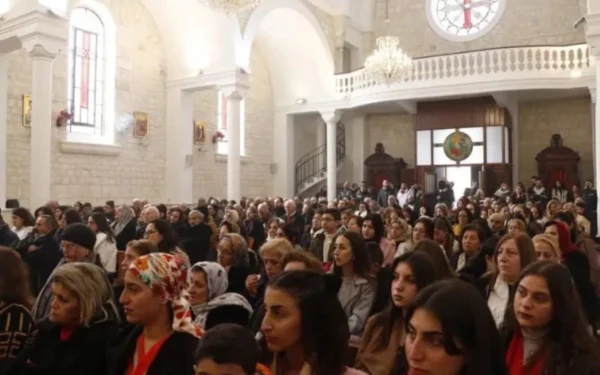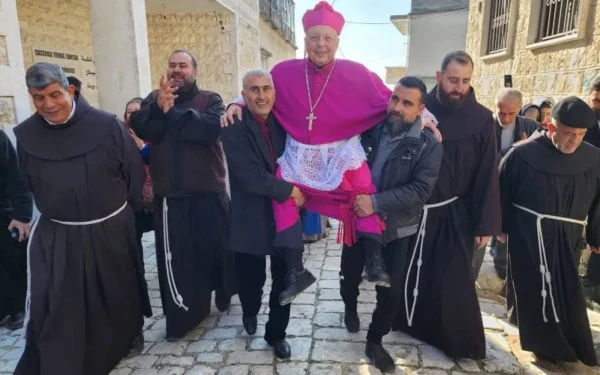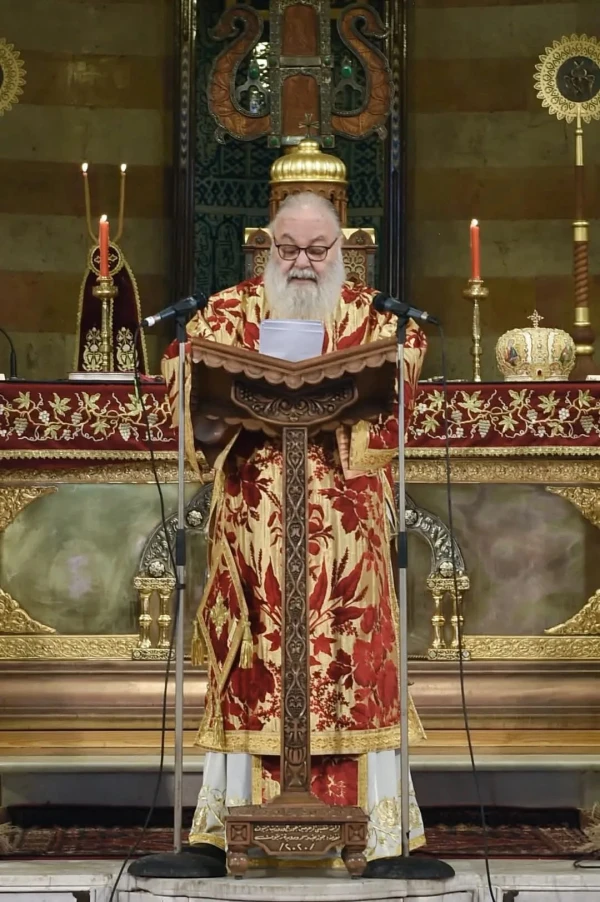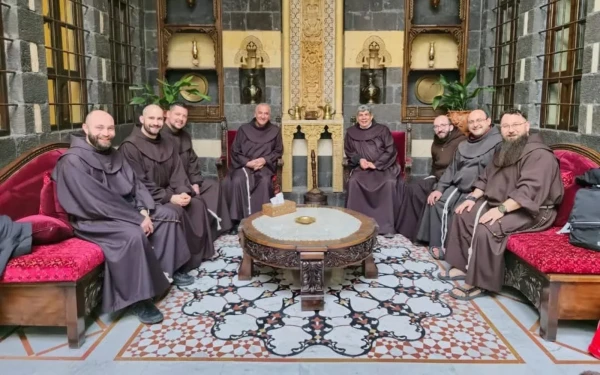More than a month after the political change in Syria, Christians there are expressing a sense of relief that the de facto government has reportedly given them initial security guarantees. Christians continue to call for more concrete guarantees, although opinions differ on what form those guarantees should take.
For some Christians, the Church remains their main safeguard, as it has been since Ottoman rule. In this perspective, the clergy is responsible for representing their communities in the political and legal spheres.
Receive the main news from ACI Prensa by WhatsApp and Telegram
It is increasingly difficult to see Catholic news on social media. Subscribe to our free channels today:

The Greek Orthodox Patriarch, John X (Yazigi), is the most visible Christian leader in Syria, along with the Latin Vicar Apostolic, Bishop Hanna Jallouf. The latter maintains a solid and lasting relationship with the new authorities. He recently visited his hometown and parish (Al-Qaniya, in rural Idlib) for the first time since his episcopal appointment, where he was warmly received.
Despite an important meeting between Church leaders and representatives with Ahmed Al-Sharaa, the head of Syria’s new administration, three Damascus-based patriarchs were notably absent. The absence was reportedly due to Patriarch Yazigi’s regular visit to congratulate the new leader, a visit that traditionally precedes any other meeting with the clergy.
Syrian laity and fraternity
Another group of Christians believes that the clergy should not be the sole guarantor of their rights, but that the laity also play a crucial role.
This position has been shared by prominent figures such as the Apostolic Nuncio in Syria, Cardinal Mario Zenari; and the Syrian Catholic Archbishop of Damascus, Mons. Youhanna Jihad Mtanos Battah.
In line with this vision, many Christians expressed their reservations in response to a recent statement by the French Foreign Minister, Jean-Noël Barrot, who expressed France’s support for “civil society and Christian representatives in Syria.” Jesuit priest Murad Abu Seif He addressed Barrot directly and stated: “We do not want to be mere coexisting groups; We aspire to be brothers who live with and for others. Today, Christians seek to defend all Syrians so that we can all live in freedom and dignity.”

Al-Sharaa statements about Pope Francis
Father Ibrahim Faltas, vice custodian of the Holy Land, who visited Damascus at the end of the year, stood out In an article for the Vatican’s L’Osservatore Romano that Al-Sharaa expressed admiration for Pope Francis, calling him a man of peace and praising his defense and actions on behalf of the people.
Meanwhile, the Christian community recently witnessed harsh criticism of the Patriarch over the absence of the new Syrian flag in the patriarchal hall. The reaction, driven by a group calling itself the “Antioqueno Movement for Change,” escalated to accusations that he was a holdover from the previous regime and demands for his resignation. This attack was widely condemned by both the Church and the public, who considered it politically motivated.

The daily life of Christians
In the last month, Christians have largely escaped targeted attacks, with a few isolated exceptions. For example, in the predominantly Christian neighborhood of Sulaymaniyah in Aleppo, a man used loudspeakers to urge women to wear the hijab and avoid socializing with men. Authorities have generally handled these incidents wisely.

All Syrians, including Christians, are experiencing some relief, particularly with the stabilization of the Syrian pound against the US dollar and prices falling by up to 40%. Bread, gas and diesel, which have been in short supply for years, have become more accessible. In addition, the general director of Electricity Transmission and Distribution announced that two ships from Türkiye and Qatar arrived to assist in power generation.
Translated and adapted by the ACI Prensa team. Originally published in ACI MENA.

